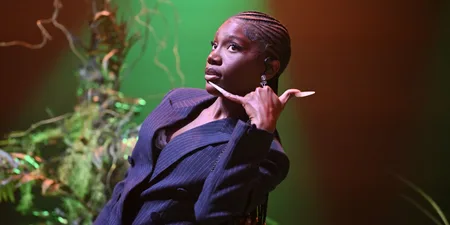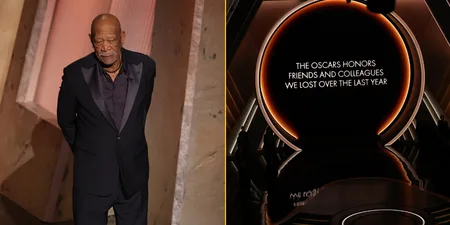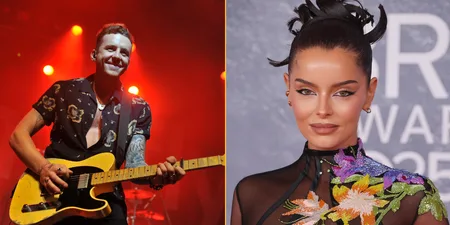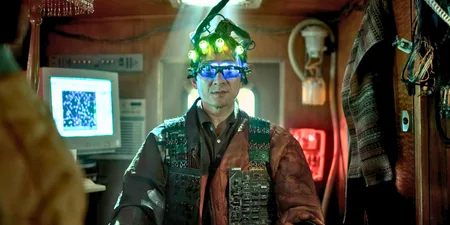“I finally realised it doesn’t get better. It gets worse.”
The world is abuzz this Monday with the revelations of Surviving R. Kelly, a three-night docuseries produced by Dream Hampton, aired in the US, featuring testimony from many women who claim to have been abused by R&B singer R. Kelly.
In short, Kelly is accused of keeping women, often young women, against their will in an abusive ‘cult’. The series alleges sexual misconduct, psychological manipulation and emotional abuse on a grand scale.
At the heart of the documentary aren’t questions about what drives an individual like Kelly to behave as he behaves, but what we do as a society that allows such things to happen in the open for so long.
For example, a few days ago on Twitter, comedian David Baddiel wrote: “Philip Larkin was a racist misogynist, TS Eliot an anti-Semite. They were both great poets. We have to be able to hold those conflicting thoughts together, as only the totally pure won’t make great art.”
We have to be able to hold those conflicting thoughts together. We just have to. Or else we lose art.
Baddiel was not referring to R. Kelly. Indeed, I don’t know who he was referring to. Could it have been Kevin Hart, who stepped down as Oscars host thanks to homophobic tweets from several years ago? Could it have been Xxxtentacion, the popular, dead, 20-year-old rapper who stood accused of brutalising his pregnant girlfriend? Or Louis CK, who disappeared for a year after a barrage of accusations of sexual harassment?
Chris Brown? Kevin Spacey? It could be any of the endless deluge of artists whose talents are undermined by things they’ve done in their personal lives.
A question: at what point do we no longer have to appreciate the art of those who say and believe in and do terrible things?
The Surviving R. Kelly series can help us answer this question. By fully illuminating the logical conclusion of a culture that allows celebrities to do whatever they want simply because they make good songs or good movies, the six-part series shows us what happens when the power of celebrity falls into the wrong hands.
Very few celebrities will commits acts as heinous as those Kelly is accused of, but Dream Hampton’s series should leave us under no illusions that the world is full of people prepared to leave decency at the door in the name of fandom.
Society’s moral compass obviously weighs celebrity’s transgressions against a spectrum. Some behaviours are indiscretions, some are shameful crimes, others are unforgivable atrocities. Where along the spectrum do we decide that we’re too shocked and too sickened to let the harm continue?
Let’s follow the timeline of R. Kelly’s stardom and pinpoint how more could have been done to stop him. As Surviving R. Kelly details, when he was 27 he wrote a song called ‘Age Ain’t Nothin’ But A Number’ (seriously), which was sung by pop-star Aaliyah. He then illegally married her in secret — it was illegal because she was 15. The very next year, he was nominated for two Grammys.
In 2002, Kelly was separately accused of urinating on an underage girl in a sex tape, and caught in possession of a digital camera that featured inappropriate images of underage girls. The very next year, he released ‘Ignition (Remix)’. It was listed by Rolling Stone as one of the 500 Greatest Songs of all Time.
In 2008, journalist Touré asked R. Kelly (who was 41 at the time) if he liked “teenage girls”. R. Kelly’s response? “When you say teenage, how old are we talking?”
Each moment was an opportunity for society to stand in the way of a runaway train, hurtling through people’s lives. So at what point do we look at the words, the beliefs, the hints and winks and smirks of those who make art and decide no, something needs to be said before this gets worse.
When R. Kelly needed clarification on what a teen was.. pic.twitter.com/qV1BBalV5H
— Will Smith Slapped Me (@AshleyShyMiller) July 17, 2017
Nobody did that in Kelly’s case, and now we’re here, in the wake of a documentary that paints him as the leader of an abusive sex cult, who has effectively kidnapped young women from their families in order to operate a harem in Georgia. In the intervening years, he has collaborated with a veritable who’s who of popular musicians. Lady Gaga, Snoop Dogg, JAY-Z, Mariah Carey, Pharrell, Diddy. We can’t imagine that any of them are taking his calls this morning.
Doubtlessly, their publicists and agents have outright refused to let them even touch the ‘Surviving R. Kelly’ project. Honestly, that’s fine. There is nothing that can be said now that would mitigate the damage done by legitimising such a man. The sin was working with him in the first place. In other words: it’s too late.
Only ‘All Of You’ singer John Legend agreed to be interviewed for Surviving R. Kelly, and has been forthright in calling Kelly a “serial child rapist” on his official Twitter account.
Separating the art from the artist is one thing. Admitting that R. Kelly has a sweet voice and a talent for songwriting is one thing. Like it or not, people will continue to listen to R. Kelly. Indeed, Spotify has confirmed that his streams have increased 16% since the documentary began. Supporting, financing and collaborating with the artist is another. Turning a blind eye when there is overwhelming evidence of wrongdoing is an absolute wrong in itself.
Everybody has a choice to make. There is no censorship. You can still watch Kevin Spacey’s movies and listen to R. Kelly’s old songs. No rule, no law, nobody is stopping you. People might tell you that it makes them uncomfortable — perhaps because they have different thresholds over the kind of behaviour they will tolerate from artists. It’s up to you to decide whether you can still feel good when you listen to ‘I Believe I Can Fly’.
Years later, Touré reflected and said: “What’s truly crazy is that Kelly’s been able to survive these allegations for so long.”
When it comes to surviving R. Kelly, R. Kelly has somehow survived. It’s because society has let him.






































